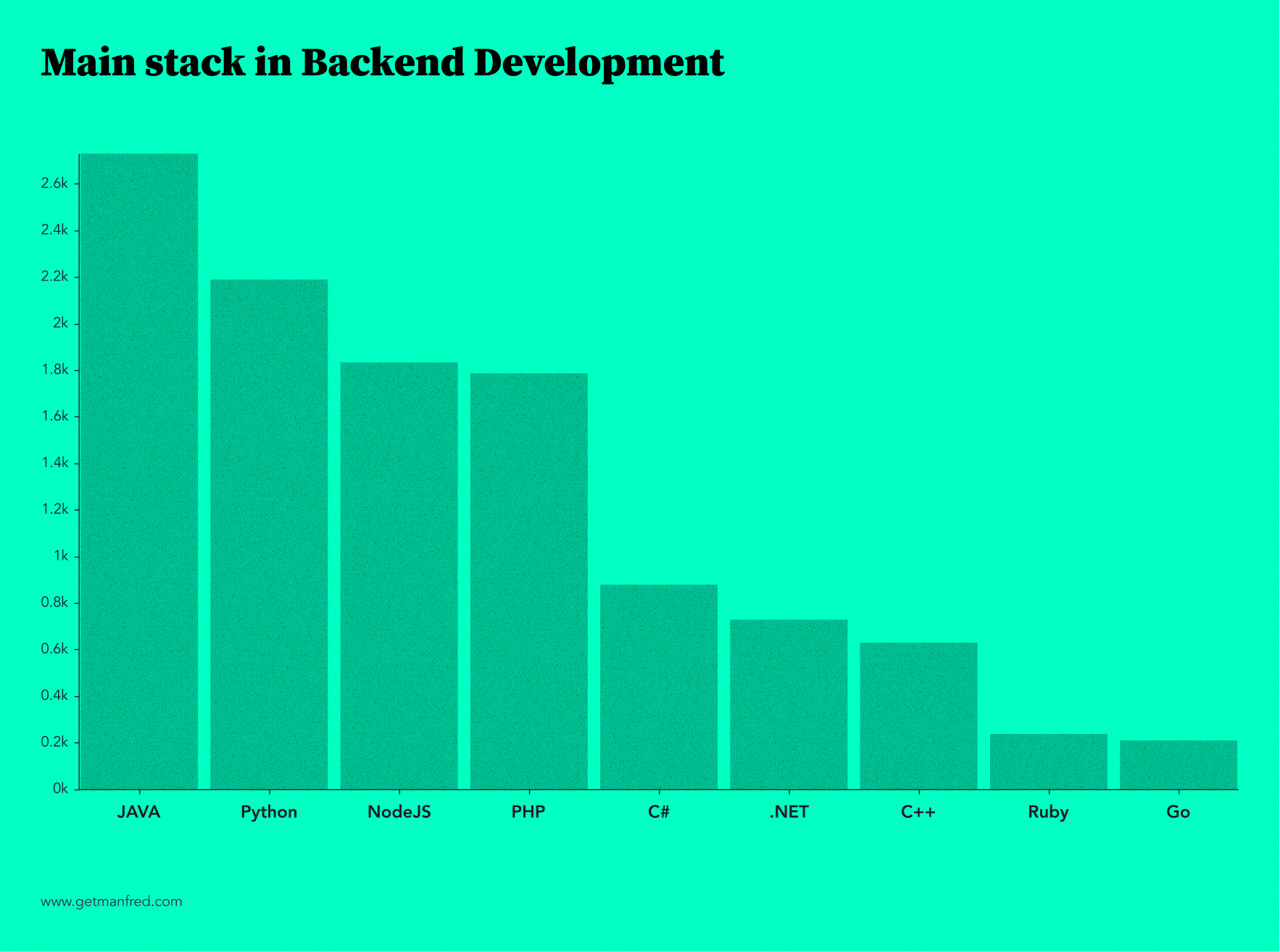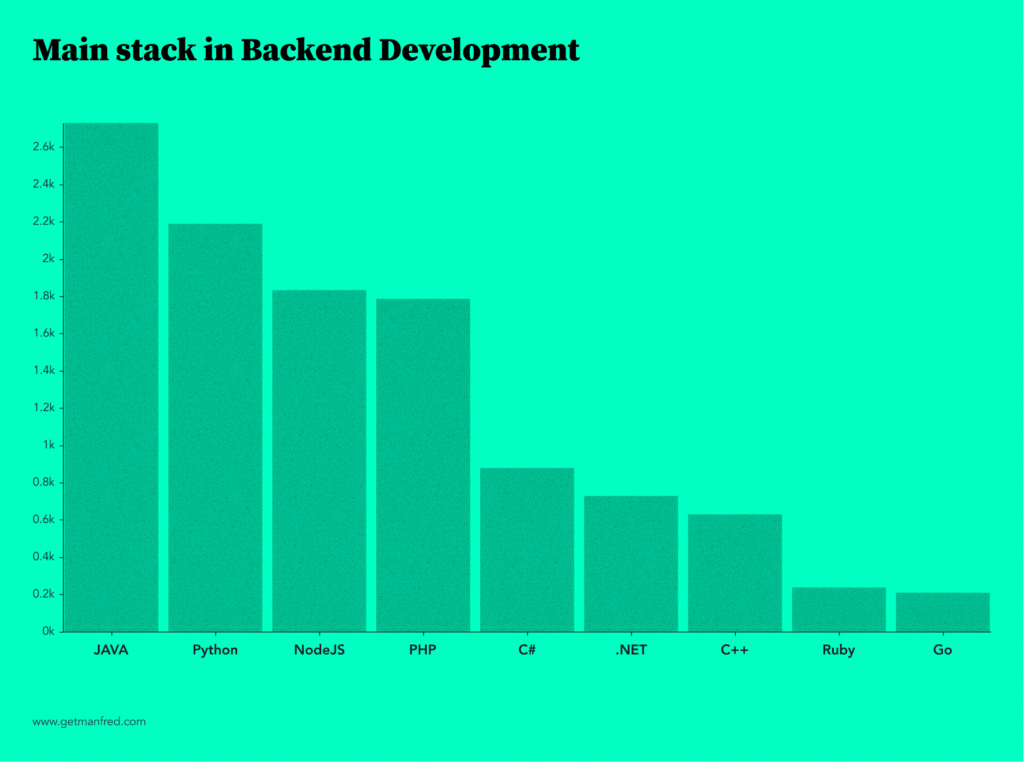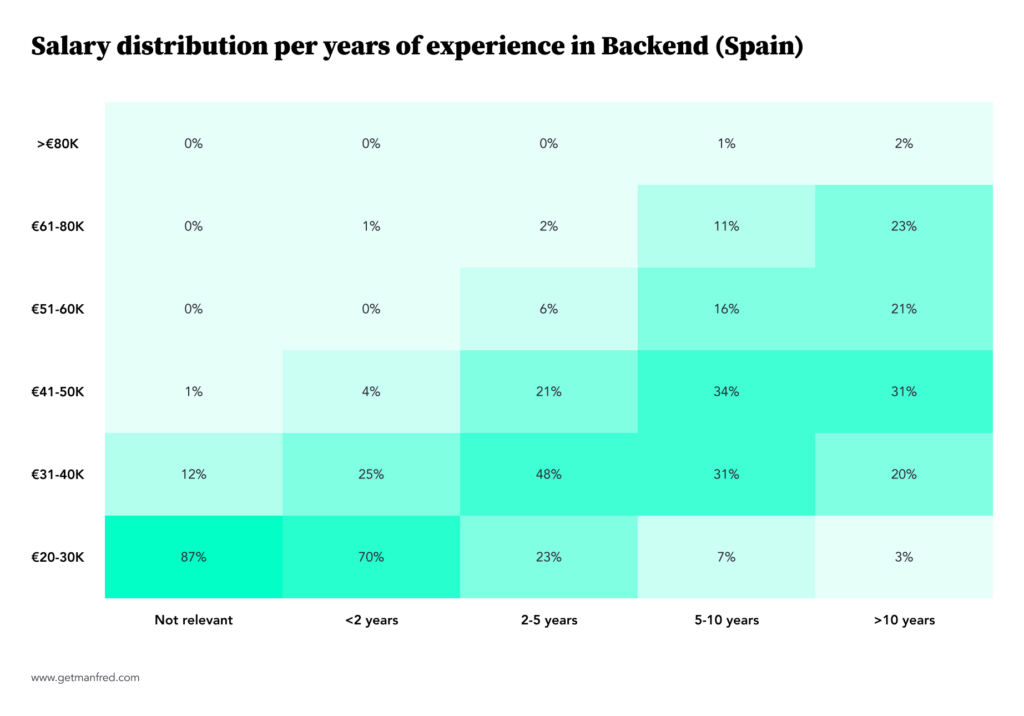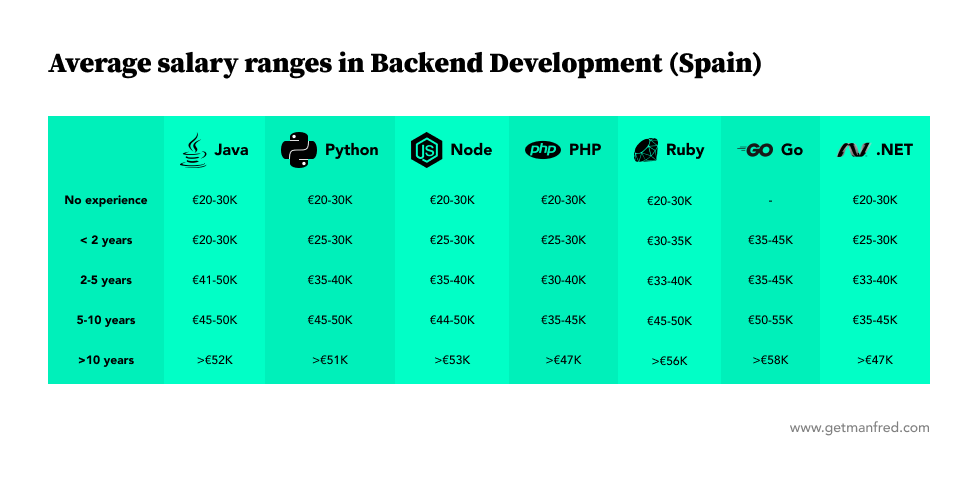On the market state of Backend Development

Since economics was first studied hundreds of years ago, the functioning of markets has been based on the formulation of the law of demand and supply. Its principles say that when a good becomes scarce, the market will be willing to pay more for it. But we are not here today to give an economics lesson, we are here to give some insight into salaries for backend developers in Spain. Which, for that matter, is exactly the same ;).
To understand the remuneration structure in this area, it is helpful to look at the distribution of these profiles: Which is the most common stack? Which is the most scarce? According to our data, the absolute predominance is JAVA, probably influenced by being the language demanded by many large companies and taught in most universities. And which one is like finding a diamond in the desert? Ruby…. And Go.
Disclaimer
It is the presence of profiles focused on various technologies that are largely responsible for the wages we will see later. But let's not get ahead of ourselves. Before cutting to the chase, we must make a disclaimer: our database has a couple of limitations. Some employment agencies would slip reports with questionable methodologies; but we, as technicians, find it difficult not to make this introduction of the data we have beforehand so that you have all the possible context.
- We do not specifically ask about anyone's current salary, but rather give users a choice among several predefined salary ranges. Why is this important? First, we are talking about aspirations and not about the current state of the market. Second, it is clear that the information would be much more accurate if we had exact amounts. For instance, our widest range is ">€80K", so from there, the information is undetermined.
- Also, there is a similar case with years of experience. We have them grouped into five ranges, the largest of which is “>10 years”. As a result, we cannot obtain an analysis of how salaries evolve from there.
Finally, we have sampled the entire database, instead of segmenting by geographic distribution. Why? We want a sufficient sample of each technology in each experience range to be able to draw meaningful conclusions.

Let's get to the point: salaries for Backend Developers in Spain
Dividing the distribution by technology may not make sense if we hold on to the fact that the trend is very similar for all segments:
- Entry levels stay in the range of €20-30K per year.
- With less than two years of experience, you will usually find yourself between 20,000 and 35,000 euros per year.
- Between 2 and 5 years of experience, you start to notice the differences, but it is very likely that as a dev you will fall between €30 and 50K.
- From 5 to 10 years of experience, devs tend to perceive between 35 and 55 thousand euros gross per year.
- From then on, as mentioned in the disclaimer, the cases of >€80K increase, and therefore our data becomes less precise. In addition, >10 years of experience is a very wide range: it can refer to someone with 10 years of experience or… 30. But let's say that from 10 years of experience, the salary tends to be above €47,000 per year.

Backend Development: which stacks are best and worst remunerated
When speaking about differences by stack, we will notice that Go stands out from the rest, clearly marked by the scarcity of profiles who are fluent in this language. In fact, in Manfred, at the moment, we barely have juniors who have touched Go. On the other hand, there is a clear demand for junior-senior profiles with Ruby. From what we experienced in our day-to-day work, there are so few seniors that most companies rather hire junior or mid-level devs who grow with them or seniors in other stacks who are willing to switch.
On the other side of the coin, we would find .Net or PHP, which are perhaps the backend technologies that are less valued in the market in terms of remuneration. And in a middle point, Java, Python and Node.js.

And with this, we'll read each other in the next analytics post. Any topic you want us to touch on? We'll read you ;).

